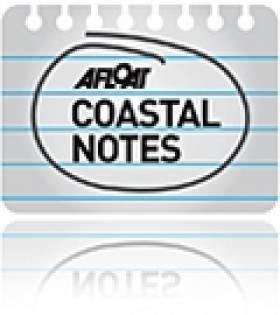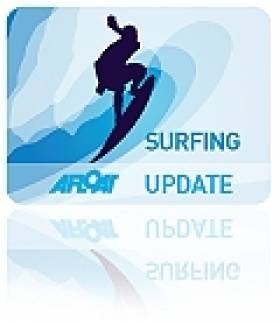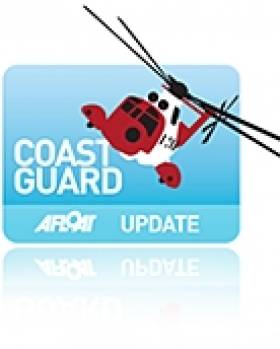Displaying items by tag: Crab Island
Surfers, Islanders Clash at Doolin Pier Hearing
#COASTAL NOTES - Clare surfers say they have no confidence that development plans for Doolin Pier will not have a negative impact on the Crab Island surf break.
The Irish Examiner reports on an oral hearing on the project held by An Bord Pleanála in Ennistymon on Wednesday morning at which representatives of the Irish Surfing Association and the West Cost Surf Club expressed their fears of losing "the jewel in the crown" of Irish surfing.
As previously reported on Afloat.ie, local surfers have been at loggerheads with Clare County Council over long-delayed plans to redevelop the pier facilities at Doolin, which currently serves more than 70,000 passengers between the Clare coast and the Aran Islands.
At present the pier cannot be accessed at low tide, and foul weather cost the ferry route to 40 days's business last year, the meeting heard.
Island co-op Comhar Caomhán Inis Oírr is among the groups supporting the €8 million development plans, arguing that the islands would be "under threat" if the project does not proceed.
Surfers Speak Out Over Doolin Point
Local surfers have expressed their dismay over the decision by Clare County Council to approve the new pier development at Doolin Point.
The Irish Surfing Association (ISA) maintains that even the revised plan - accepted by the council's 32 members following previous objections - would result in the destruction of the renowned waves at Doolin Point and Crab Island.
"I am very disappointed with this decision," Neil Cooney of West Coast Surf Club told Surfer Today. "A great deal of work was put into the West Coast Surf Club and ISA submission but it seems that the issues raised were ignored and brushed over."
He added: "If this development is built as now proposed it would be a catastrophe."
Coastguard Calls for Doolin Pier Go-Ahead
The Doolin Coast Guard Unit has urged Clare County Council to continue its €6 million development plan for Doolin Point.
The pier plan has faced opposition from surfers who argue that the development will ruin the popular waves in the area.
The Irish Examiner reports that in the latest submission to the council, the Doolin Coast Guard Unit supports the development, claiming the current pier is "regularly over-congested" in peak tourist periods.
"This, in turn, can make it very difficult for our members to launch our boats in an efficient manner where time is of the essence," states the unit's officer in charge Mattie Shannon.
A separate submission by Doolin Tourism and Doolin Community Harbour Co-op, backed by 150 signatures from locals, called on Clare County Council to go ahead with the plan.
They dismissed surfers' concerns, stating that "the proposed pier and breakwater will not create a back wash effect" on the surfing waves at Crab Island and other areas.
The Irish Examiner has more on the story HERE.






























































